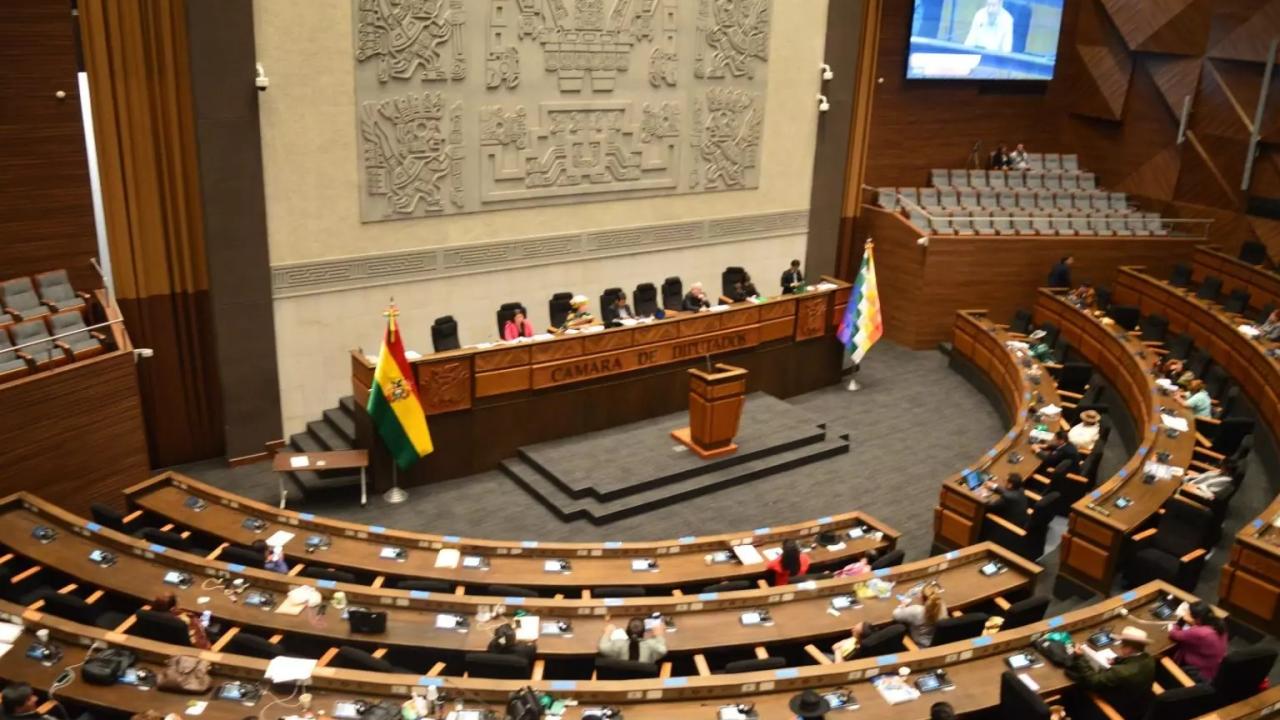
The chamber discussion of including the bills on the suspension of procedural deadlines) and the cessation of functions of the magistrates delayed the treatment of the project.
The Chamber of Deputies of Bolivia postponed the treatment of the bill for Ratification of the Protocol of Accession of the Plurinational State of Bolivia to the Southern Common Market (Mercosur) early this Thursday due to the debate of other projects that were discussed in the 81st session ordinary installed on Wednesday.
The deputy of the Movement Towards Socialism (MAS) Deisy Choque reported that the discussion in Deputies on the inclusion of bills on the suspension of procedural deadlines and cessation of functions of magistrates delayed the treatment of project 140/2023-2024 set for Wednesday .
“The delay in the debate again of wanting to introduce project 073 and 075 has taken us many hours of this session, but we have postponed this project, I think it is very important, and it has been defined to be able to discuss it in a next session, perhaps as one one of the first points to discuss,” he told Bolivia Tv.
In December of last year, at the 63rd session of Mercosur in Rio de Janeiro, Brazil, Brazilian President Luiz Inácio Lula Da Silva promulgated the protocol for Bolivia's accession to Mercosur as a full member. In this way, the full incorporation process was completed, since Argentina, Paraguay and Uruguay had previously given their approval.
Once the bill is approved by the Chamber of Deputies, it must go to the Bolivian Senate for review and subsequent sanction, and then to the Executive Branch for its promulgation.
Once the procedure has been completed, the Executive Body must “formalize the Deposit of the Instrument of Ratification of the Protocol of Accession of the Plurinational State of Bolivia to Mercosur” in the Ministry of Foreign Affairs of Paraguay.
REQUIREMENTS
From that moment on, Bolivia will have a period of up to four years to adopt all the regulatory baggage of the bloc and consolidate reciprocal free trade with Brazil, Argentina, Uruguay and Paraguay.
Article 13 of the Accession Protocol, signed in 2015, states that “the Plurinational State of Bolivia will gradually adopt the current regulatory acquis of Mercosur, no later than four (4) years, counted from the date of entry into validity of this instrument.”
A Working Group will establish the “schedule for adoption of said regulations.”
During this period, Bolivia must adopt the Mercosur Common Nomenclature (NCM), the Common External Tariff (TEC) and the Mercosur Origin Regime.
At the same time, the Bolivian government was set to cancel bilateral agreements, such as the economic complementarity agreement with Venezuela, which has been suspended from its rights and obligations as a member of the bloc since 2017.
Furthermore, Article 6 of the document establishes that “the Parties agree to achieve reciprocal free trade as of the date of entry into force of this protocol.”









